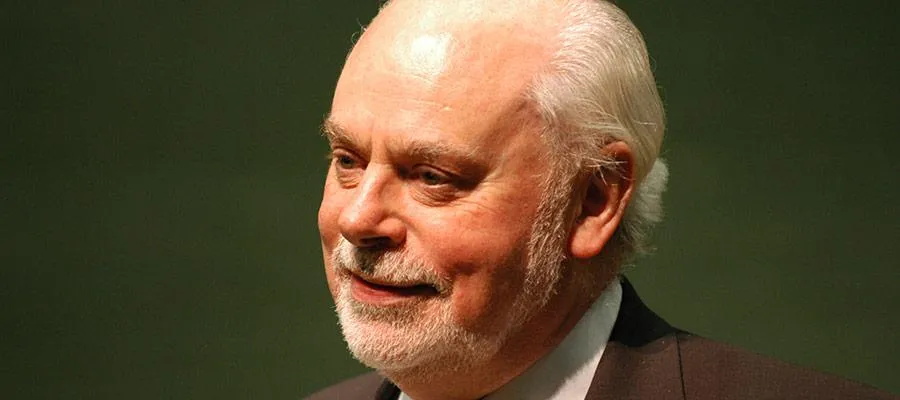
The 2016 chemistry prize was awarded jointly to Professor Stoddart, Jean-Pierre Sauvage and Bernard Feringa "for the design and synthesis of molecular machines".
Edinburgh links
Professor Stoddart, currently of Northwestern University in Illinois, received his BSc from Edinburgh in 1964 and a PhD from the University two years later.
He was also awarded a DSc degree by the University in 1980 for his research into stereochemistry beyond the molecule.
The Professor was named Edinburgh's Alumnus of the Year in 2005 and knighted in 2006.
Stoddart Prize
A University of Edinburgh award, the Fraser and Norma Stoddart PhD Prize, was established in 2013.
Its winners must demonstrate superior research accomplishments throughout their time at Edinburgh.
They are also expected to have contributed to the life of students within the School of Chemistry and beyond.
Professor Stoddart visited the School in April to award this year's prize to Dr Andrew Maloney.
Pioneering career
The Professor is one of the few chemists of the past 25 years to have created a new field of organic chemistry.
His Nobel award recognises Professor Stoddart’s development of a rotaxane molecule, which he did in 1991.
To do this, the researcher threaded a molecular ring onto a thin molecular axle and demonstrated that the ring was able to move along the axle.
Among his developments based on rotaxanes are a molecular lift, a molecular muscle and a molecule-based computer chip.
This focuses on the mechanical bond as a pre-eminent feature of molecular compounds.
We are delighted at the news of this Nobel Prize award and congratulate Professor Fraser Stoddart on his achievement. The University of Edinburgh can be justifiably proud that he has built upon his education at this University to reach the top of his profession. His enthusiasm to communicate his subject beyond the academic community has inspired future generations to consider the amazing possibilities of scientific research. We have maintained a warm relationship with Fraser over the years and he, in turn, retains an obvious affection for his home city and this university - only in April he visited our School of Chemistry to present the Fraser and Norma Stoddart PhD Prize, which recognises excellence in research. For someone who has given so much to others throughout his career, we are thrilled that his work is being celebrated at the highest level.
Professor Sir Timothy O'SheaPrincipal of the University of Edinburgh

